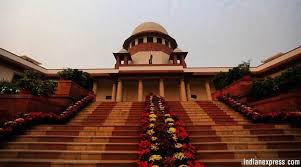Indian Penal Code, 1860 – Sections 302 & 34 – Murder – Conviction set aside – Appreciation of Evidence – Concurrent Findings – Eye Witness Testimony – Inconsistency -Improbability – Benefit of Doubt – The prosecution case relied on the testimonies of three eyewitnesses – Ram Prakash (father of the deceased), Sultan Singh (uncle of the deceased), and Ram Naresh (maternal uncle of the deceased). They claimed to have witnessed the accused firing gunshots at Sanju from the roof of Omkar’s house, leading to his death.
The appellant plea that the eyewitnesses’ testimonies were unreliable due to inconsistencies and improbabilities. The distance between the two houses made it impossible for the witnesses to have seen the events as described. The conduct of the eyewitnesses, who did not attempt to intervene or raise an alarm, was unnatural.
The Court identified discrepancies in the eyewitnesses’ accounts, particularly regarding their presence on the roof and their ability to see the accused from the vantage point they claimed. The Court found the sequence of events described by the witnesses to be improbable and lacking a logical motive. The Court highlighted the unnatural behavior of the eyewitnesses, who allegedly witnessed the assault without attempting to help the victim.
Drawing a parallel with the case of Selveraj v. State of Tamil Nadu [(1976) 4 SCC 343], the Court emphasized the importance of scrutinizing eyewitness accounts for inherent improbabilities. The Court, finding the prosecution case shrouded in doubt due to inconsistencies and improbabilities, set aside the concurrent findings of the lower courts. The appellant was acquitted by giving him the benefit of doubt. (Para 15, 19, 31, 33)
SUPREME COURT OF INDIA
2024 STPL(Web) 333 SC
[2024 INSC 384]
Jagvir Singh Vs. State Of U.P.
Criminal Appeal No(S). 3684 Of 2023-Decided on 07-05-2024
https://stpllaw.in/wp-content/uploads/2024/05/2024-STPLWeb-333-SC.pdf







